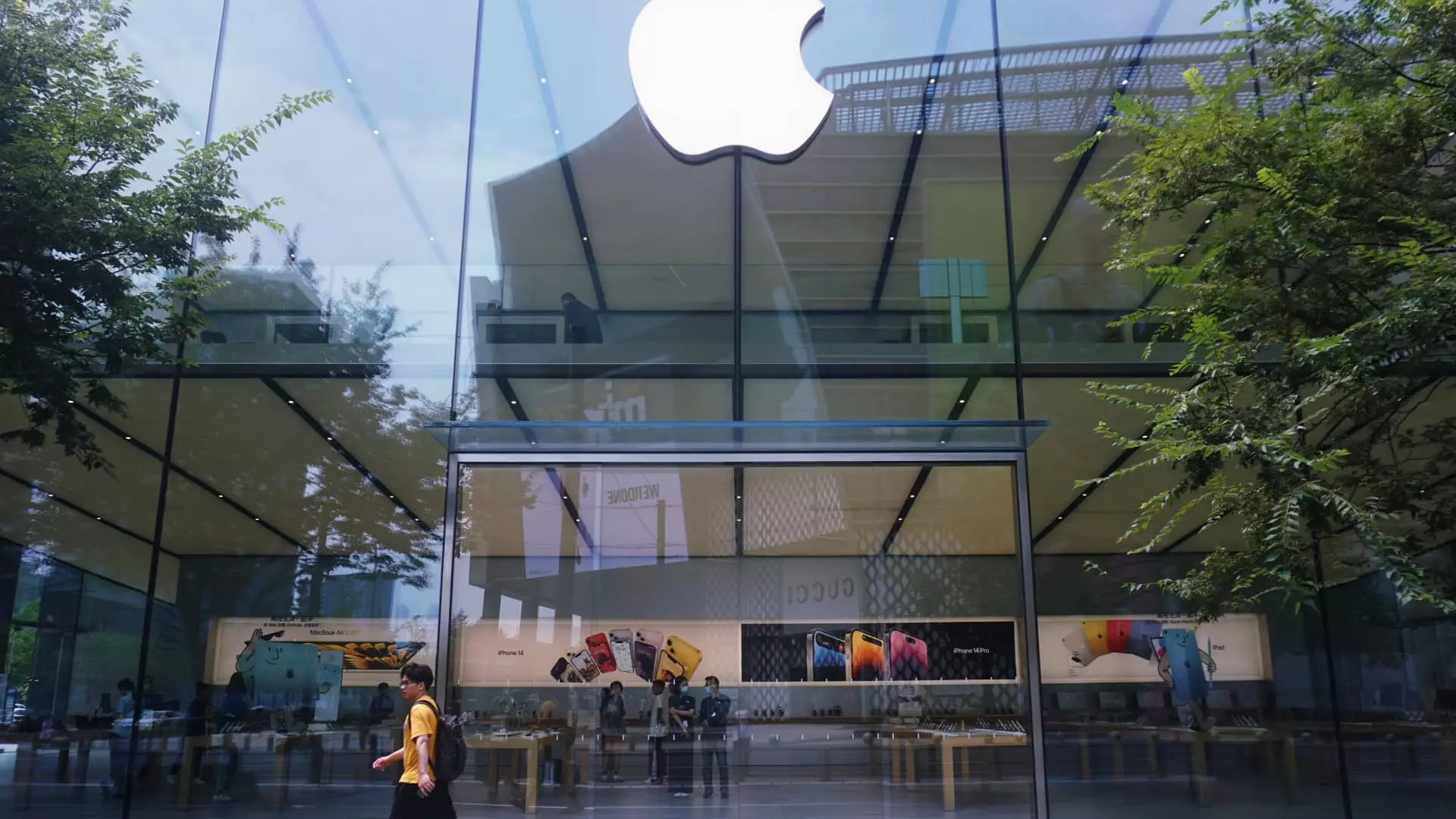In the ever-evolving landscape of consumer electronics, the tentative march toward foldable smartphones symbolizes more than just technological curiosity; it reflects a profound geopolitical and economic maneuvering. Chinese component manufacturers such as Lens Technology are capitalizing on the anticipation of a new Apple device, positioning themselves not merely as suppliers but as pivotal players in a larger game of technological influence. While Apple remains silent on definitive plans, the market’s assumptions and investments reveal the rising importance of Chinese manufacturing prowess in shaping global consumer trends. This isn’t simply a story about glass or screens; it’s a testament to how China’s strategic investments and supply chain dominance are subtly shifting the geopolitical balance in the tech realm, subtly challenging Western preeminence while reinforcing China’s central role in the future of mobile innovation.
The recent Hong Kong listing of Lens Technology, occurring amidst a broader surge of Chinese firms seeking international capital, exemplifies China’s calculated approach to enhancing national technological sovereignty. The influx of foreign investment, notably from influential figures like hedge fund titan Steve Cohen, underscores an international recognition of Chinese manufacturing’s transformation from peripheral to central in high-tech supply chains. The company’s heightened focus on foldable screens and advanced display technologies suggests an understanding that the next wave of flagship smartphones—regardless of whether they are from Apple—will prioritize innovation that China’s factories are uniquely poised to supply efficiently and at scale.
This strategic diversification away from reliance on any single customer, such as Apple, indicates a mature adaptation to a more complex and competitive global market. Investments in overseas factories from Vietnam to Mexico further demonstrate an intent to diversify production bases, reducing vulnerabilities associated with geopolitical tensions, trade tariffs, and cross-border disruptions. These moves are emblematic of China asserting not just economic data points but a geopolitical stance, leveraging industrial capacity as a form of soft power that could influence future market dynamics far beyond silicon chips or glass panels.
The Significance of Market Manipulation or A Shift in Power Dynamics?
While critics may initially dismiss the rise of Chinese suppliers like Lens Tech as مجرد incremental progress, the reality is far more insidious and influential. The company’s potential contributions—providing ultra-thin glass for foldable devices—are a seemingly niche component but in reality serve as a linchpin in the impending clash between American innovation and Chinese manufacturing resilience. In essence, the shift hinges on whether Western tech giants can maintain dominance or are increasingly subjected to a supply chain under Beijing’s strategic influence.
The heightened interest from global investors, including notable figures like Cohen, signals a broader acknowledgment that this supply chain transition has deep geopolitical implications. By orchestrating the expansion of capacities in regions like Vietnam and Thailand, China is gradually asserting the ability to supply cutting-edge components independently of Western markets. This not only diminishes the strategic leverage Western countries and corporations currently wield over their supply chains but also hints at a future where the competitive edge in high-tech products is more localized based on regional manufacturing clout rather than globalized supply chains.
With a projected revenue contribution of up to 12% for manufacturers like Lens Tech within the next four years, it’s evident that Chinese firms are positioning themselves to become essential pillars in the next generation of mobile innovation. This calculated build-up isn’t solely about profit margins; it’s about creating a resilient industrial ecosystem capable of supporting and possibly shaping the design and features of upcoming flagship devices. The strategic investment in R&D, overseas capacity building, and diversified customer base suggests a low-key but decisive move toward technological independence—a move that could ultimately challenge the hegemonic influence of Silicon Valley-based giants.
What Does This Mean for Global Power and Innovation?
The broader implications of this shift are subtle but profound. As Chinese firms like Lens Tech continue to develop and expand, they are not merely serving their local markets but positioning themselves as primary suppliers for multinational giants—including Apple—should those companies decide to capitalize on foldable designs. In doing so, China’s industrial base could gain leverage in negotiations, potentially influencing the design and pricing of future devices or even shaping industry standards.
Moreover, this pivot may lead to a de-risking of global supply chains, a necessity that has become painfully clear in recent years. While the Western world often preaches diversification, it has historically relied heavily on Chinese manufacturing—an untenable position in a period of geopolitical turbulence. The rise of competitive Chinese suppliers executing at scale, supported by aggressive IPO strategies and foreign investment, compounds the risks to existing supply chain dependencies. It brings to light the uncomfortable truth that technological leadership is increasingly intertwined with national industrial capacity—an aspect that Western policymakers and corporations ignore at their peril.
Lens Technology’s ascendancy symbolizes more than just a business success story; it exemplifies a geopolitical shift in technological influence. The question isn’t just whether the iPhone will eventually adopt foldable technology but whether the global dominance of Western-designed consumer electronics can withstand the rise of a China-led manufacturing renaissance. The future may well be dictated less by innovation alone and more by manufacturing resilience, supply chain control, and strategic capital deployment—an evolving power calculus that no longer defaults to traditional Western supremacy.
In the end, the real battle is about control—over technology, over markets, and over the narrative of innovation itself. Those who succeed in capturing the global supply chain’s critical nodes will shape the future of consumer tech, for better or worse.

